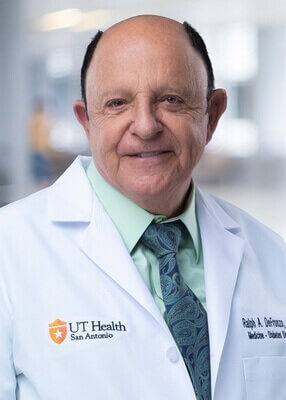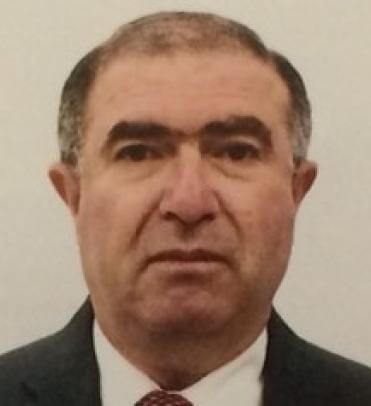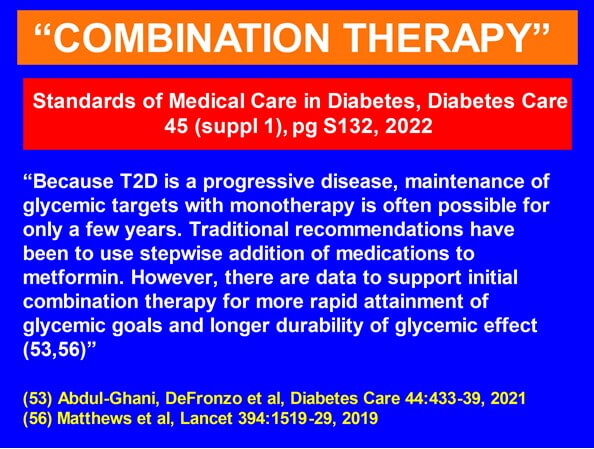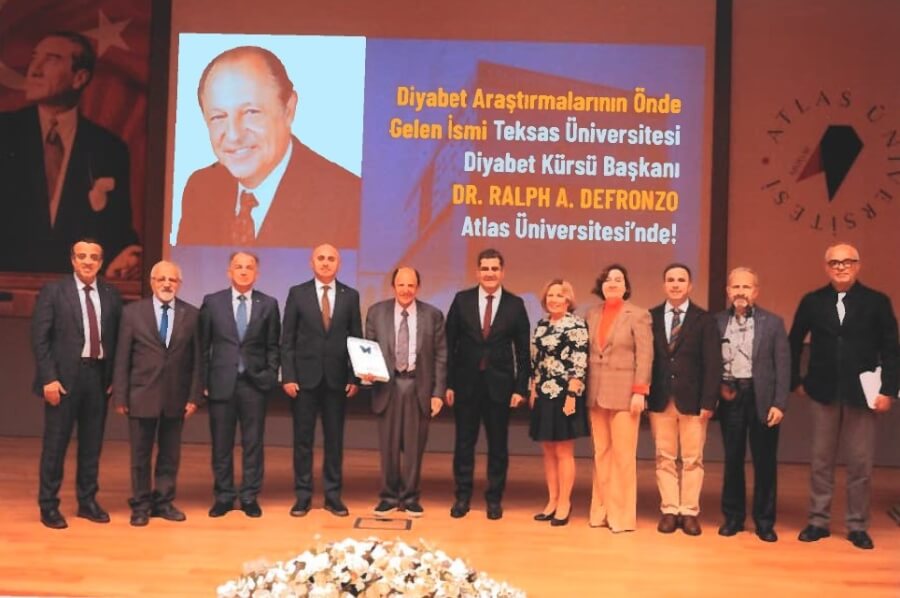UT Health San Antonio’s diabetes reputation grows internationally with Kuwait joining Qatar as sites repeating successful EDICT trial
They know of The University of Texas Health Science Center at San Antonio’s diabetes program in the Thai royal palace in Bangkok. They are familiar with it in Kuwait and Qatar, too. And at the medical school of Atlas University in Istanbul, Turkey. And throughout Europe.

Around the globe, Ralph DeFronzo, MD, and the Division of Diabetes in the Joe R. and Teresa Lozano Long School of Medicine are advocating a shift in the treatment of Type 2 diabetes mellitus. Their EDICT study (Efficacy and Durability of Initial Combination Therapy for Type 2 Diabetes), published in 2021, showed the effectiveness of prescribing, from the outset of a patient’s therapy, a trio of medications that target core defects underlying the disease.
Significant difference
In EDICT, the combination therapy consisting of metformin, pioglitazone and exenatide helped 70% of patients to maintain a hemoglobin A1C level below 6.5% for three years and enabled them to lose on average a small amount of weight. The randomized, controlled trial compared this against conventional therapy consisting of an escalating dose of metformin, followed by sequential addition of sulfonylurea and basal insulin. The standard therapy failed to keep A1C levels below 6.5% in two-thirds of patients over the three years, and there was an average weight gain.
International award
In 2022, in part because of EDICT and more than 850 lifetime publications, DeFronzo received the prestigious Prince Mahidol Award bestowed by the royal family of Thailand. It is given to a person in medicine and science who has made major, novel and innovative contributions that have changed global health. Multiple Nobel laureates have won the award, including Francis Collins, MD, PhD, who led the National Institutes of Health Human Genome Project.
Kuwait exchange

In the latest development with EDICT, UT Health Science Center San Antonio signed an interchange agreement with the Dasman Diabetes Institute in Kuwait City for an exchange of both basic and clinical research. “We have established a clinical research center at the Dasman Institute,” DeFronzo said. “Our faculty, including Muhammad Abdul-Ghani, MD, PhD, and research nurse James King, have spent time there and trained the entire staff.”
The team is initiating a program to identify every Kuwaiti who has Type 2 diabetes or prediabetes and begin the EDICT combination drug therapy. The outreach, funded by Kuwait’s government, will be conducted via nationwide TV, radio, newspapers and social media.
Qatar research published
UT Health Science Center San Antonio established a similar clinical research program in Qatar five years ago, and an EDICT trial conducted among Qataris has been published with three years of data.
“Just as the EDICT regimen was effective here in San Antonio, it worked in Qatar,” DeFronzo said. He will travel there again in January to discuss a comprehensive EDICT outreach program to all Qataris at risk for Type 2 diabetes.
Guidelines revised
The EDICT case studies in San Antonio and Qatar led to a change in American Diabetes Association guidelines, DeFronzo noted. “In 2023, for the first time, the ADA is recommending combination therapy, and they quote only one study, EDICT,” he said.

This is an example of UT Health Science Center San Antonio receiving international recognition for:
- Basic science discoveries made in the Alamo City.
- Extending clinical research studies first conducted with the support of clinical partner University Health at its Texas Diabetes Institute.
“All of these studies were done initially at the Texas Diabetes Institute from my National Institutes of Health grants,” DeFronzo said.
A method of care
Qatar has 2.7 million people and Kuwait 4.3 million. The first EDICT study established the methodology for reaching those at risk of Type 2 diabetes, even in nations of this size.
“The implication for San Antonio and Bexar County is clear,” DeFronzo said. “If with the proper financial backing, EDICT can be done in an entire nation, then it can be done among Bexar County’s 2.1 million people. We need to do this here in Bexar County.”
Local and international
The exchange programs enable scientists in Qatar and Kuwait to learn research methods at the health science center in San Antonio and take them back to their countries, he said.
“This is local and international,” DeFronzo said. “This is public health. This is education. This is diabetes prevention in different settings.”
Turkish exchange
A similar exchange program has been set up with the Atlas University medical school in Istanbul. DeFronzo has trained several individuals there, including a physician that some regard as the top diabetologist in Turkey.
DeFronzo recently delivered the inaugural Ralph DeFronzo Lecture at the Atlas Medical School, which named its auditorium in his honor. Discussions are ongoing about further collaborations there, DeFronzo said.



